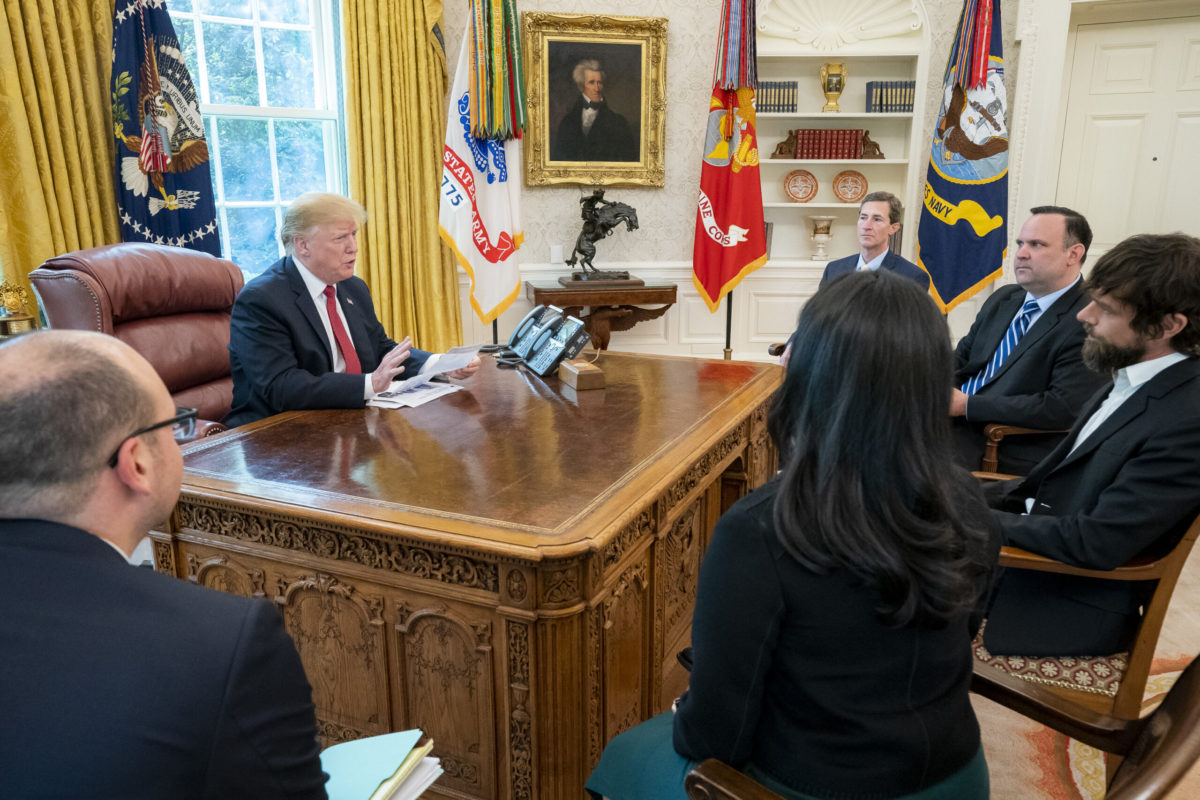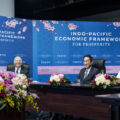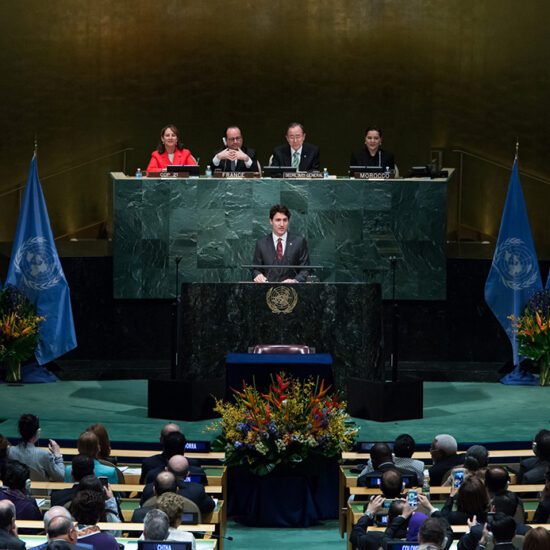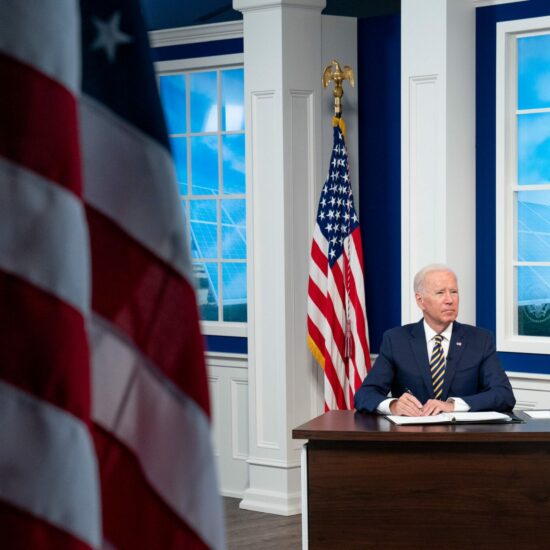
President Trump meets with Twitter CEO Jack Dorsey in the Oval Office / The White House
The intersection of social media, state propaganda, and corporate influence is a messy affair. The anonymity provided by online platforms means that these relationships are extremely difficult to parse. Yet their existence and continuing influence on politics is clear.
By Amadeus Narbutt
The entanglement of social media and politics in recent years is striking. President Trump treats his Twitter account like a pulpit, the term ‘fake news’ is now common parlance, and misinformation is pervasive. Concerns about bias and manipulation in social media came to the fore of public debate in the wake of the American Presidential election of 2016 when accusations of electoral interference were levied against Russia. Though the extent of Trump’s personal ties to any Russian conspiracy remains unclear, it seems certain that the Russia-based Internet Research Agency did employ social media bots in order to inflame public discourse in the run-up to the 2016 election. Yet despite all of this baggage, social media remains the main source of news for about half of Americans and Canadians.
Originally published in 1988, Chomsky & Herman’s ‘Manufacturing Consent’ was a groundbreaking study of mass news media which claimed that it operated along a ‘propaganda model’ as system-supportive institutions of elite American society. Particularly, the authors studied the coverage of foreign policy to show that the biased nature of mass media functioned to provide a limited range of opinion within which news media discourse operated, one which did not question the aggression of American actions abroad. One of the crucial ‘filters’ that created this propagandistic nature was the corporatized ownership of media conglomerates; the rich and powerful owned the press and so they controlled the narrative.
With the rise of the internet and social networks, many predicted a ‘democratization’ of media, communication, and knowledge. Now everyone has a publishing device in their own pocket, and the power of the people would speak the truth. There were some promising developments like the Arab Spring in 2011, which was originally titled the ‘Twitter Revolution’, though only Tunisia sustained positive democratic developments long-term. Clearly, social media created some new avenues for political participation and mobilization. Politicians like Alexandria Ocasio-Cortez or Elizabeth Warren can interact with the public in real-time through social media forums, fielding real questions from real individuals without the middle-man interference of a corporate news outlet.
Yet these positive developments are accompanied by many frightening and eerily authoritarian consequences. The Intercept has reported that Facebook profile data has been used by the Immigration and Customs Enforcement (ICE) officers to surveil and arrest immigrants. Recent developments in artificial intelligence and facial recognition means that companies like Clearview AI have the capability to end the concept of anonymity in public places. Abroad, recent cases of manipulation of American-based social media platforms have attempted to bolster American foreign policy interests. After the coup that occurred in Bolivia last November, which ousted anti-imperialist leftist President Evo Morales, social media was filled with the hashtag #BoliviaNoHayGolpe. The hashtag – which means ‘there is no coup in Bolivia’ – was used by individuals who claimed that the ouster of Morales by military force was a democratic act. Yet a closer look at the explosion of tweets showed that nearly a third of accounts using the hashtag were created on the day of the coup, suggesting they were registered for the specific purpose of creating a wave of ‘authentic’ support for the new regime.
These kinds of manipulations are commonplace globally, from Germany to Rwanda and China. Interestingly, the Oxford Internet Institute (OII) shows that democracies are more involved in the manipulation of social media than authoritarian states. This is likely due to the fact that democracies – at least nominally – have some use for perceived consent from their citizenry, whereas for authoritarian states, traditional censorship and propaganda tactics suffice.
In these developments, there has been a disconcerting relationship between large technology companies and governments. Specifically, the report from OII describes Facebook as the “platform of choice” for social media manipulation. In the 2017 German elections, the far-right neo-fascist party Alternative für Deutschland (AfD) hired consulting firm Harris Media to manage their social media campaign. The Trump-linked firm, in partnership with Facebook, created personality models of Germans who would be susceptible to AfD messaging and paid Facebook to target those communities specifically through advertisements. This campaign led to the AfD surging to third place with 13% of the vote, and allowed a nationalist party to enter the Bundestag for the first time in decades.
A similarly frightening occurrence can be seen in far-right demagogue Jair Bolsonaro’s victory in Brazil in 2018. Bolsonaro rode to victory on a wave of misinformation that was disseminated to Brazilians via WhatsApp (which is owned by Facebook). As the main messaging app used by 120 million Brazilians, the communication network it has amassed and the personality profiles that Facebook’s algorithms generate are goldmines are for political influence and manipulation.
The intersection of social media, state propaganda, and corporate influence is a messy affair. The anonymity provided by online platforms means that these relationships are extremely difficult to parse. Yet their existence and continuing influence on politics is clear. Social media – as it stands currently – is not a democratic expression of political interests, but rather a new medium for disinformation and manipulation. Further, since these online ecosystems are increasingly becoming recruiting grounds for political extremists, the situation only becomes more difficult to untangle. Often it is difficult to tell what online content is targeted misinformation by bots and what is the genuine opinion of those who have already been converted by the propaganda of others.
The manufacturing of consent is still occurring, but in a pervasive digitized platform that exists in everyone’s pocket. This reality is dystopian and impossible to escape; the dangers Chomsky and Herman identified are if anything more frightening and powerful today than they were thirty years ago. In terms of its impact on global affairs, the rise of social media and the internet have done little to aid democracy. Instead, mass surveillance, far-right radicalism, and propaganda have become the new normal.







